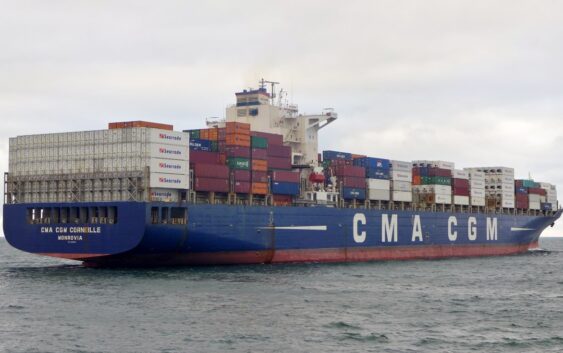- GPA ANNOUNCED PLANS TO BUILD SECOND LANDER BRIDGE IN THE GAMBIA
- HOW CAMEROON AVIATION SAFETY KEEPS IMPROVING BUT FALLING SHORT OF INTERNATIONAL STANDARD
- NWSC SET TO IMPROVE WATER INFRASTRUCTURE IN UGANDA
- CHINESE FIRM TO EMBARKED ON SEWERAGE SYSTEM PROJECT IN RWANDA
- TOGO GOVT. LAUNCHED TUTUDO PROGRAM TO TRAIN 500 PEOPLE ON ENERGY-RELATED PROFESSIONS
HOW RAIL AND MARITIME INFRASTRUCTURAL INVESTMENT IS NEEDED FOR AFRICA TO STRIVE

Deputy President Paul Mashatile says Africa needs to reduce structural and regulatory barriers to unlock investment in road and maritime infrastructure and facilitate successful intra-African and global trade.
“The quality of much of the continent’s maritime, road, and railway infrastructure is less than satisfactory. There are few road links, generally poor road infrastructure maintenance, and limited regional road linkages throughout the continent’s five regions,” the Deputy President said on Wednesday.
He was speaking at the African Continental Free Trade Area (AfCFTA) business forum in Cape Town, where the city is playing host to Africa’s biggest business event to promote private sector participation in the acceleration of the implementation of the AfCFTA.
According to the Deputy President, roads are the predominant mode of transport in Africa, carrying about 80% of goods and 90% of passengers.
“Without this infrastructure, rail and maritime trade cannot realize their full potential. Road transport is therefore an indispensable part of daily African economic activity and critical to facilitating cross-border trade and regional integration.
“Another impediment we must confront are inefficiencies at border posts, many official and unofficial inspection points along transport corridors, and low road densities.”
Despite the obstacles, Mashatile believes the continent is moving in the right direction towards a “one African market”.
As of February 2023, he said 47 of the 54 signatories to the AfCFTA have deposited instruments of ratification.
Mashatile believes that Africa is in a process of creating the world’s largest single free trade area, with 1.3 billion people and a gross domestic product of $3.4 trillion.
“This represents an important step forward, which must culminate in the ratification of the AfCFTA instrument by all African Union Member States. The implementation of the AfCFTA will improve intra-African trade, the continent’s share and participation in global trade, stimulate and improve her economy as well as contribute to lifting millions of people out of poverty.”
The continent has embarked on the gradual elimination of tariffs on 90% of goods, and the reduction of barriers to trade in services aimed at increasing Africa’s income by $450 billion by 2035.
Mashatile believes this will also help to lift between 50 to 100 million people out of poverty.
“This would represent a significant improvement in the economy and the quality of life of the people.”
He also cited the Secretary General of the United Nations Conference on Trade and Development, Rebeca Grynspan, who pointed out that Africa boasts $21.9 billion of untapped export potential, of which an additional $9.2 billion can be realized through partial tariff liberalization under the AfCFTA over the next five years.
“I am informed that during the last three days [of the forum], you have had extensive discussions, which identified more impediments to African trade and the solutions necessary for implementing the AfCFTA.
“The solutions you have identified will hopefully take us a step closer to the actual investment projects that give renewed meaning to the objectives of the AfCFTA,” Mashatile said.
He said gatherings such as the forum ought to serve as launch pads for long-lasting relations amongst the African business community in pursuit of practical programs of economic action.
“The AfCFTA will become a ‘game changer’ to the continent’s growth trajectory, as some conference participants have suggested, if you, the continent’s business community – together with governments and the working people of our continent – act in unison, refusing to drop the ball.”

